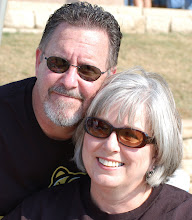I've been reading through some old entries and wanted to think about this again:
1. I've met hundreds of people who used to attend church but are currently disconnected or disenfranchised or disinterested.
Usually someone said something or did something that offended them. Sometimes it was the result of poor choices that were unwelcome and they felt unwanted and unloved. Others just didn’t find their experience relevant.
2. Many institutional churches are over-programmed and primarily centralized in their approach to ministry.
In those cases, the prime directive appears to be survival. Institutions require organization and structured leadership. When a vacancy occurs, the priority becomes recruiting new leadership instead of evaluating the program’s effectiveness and life-cycle. There seems to be a perpetual re-tooling, re-naming, and re-running of old, tired, ineffective ideas.
Over-programming also leads to over-scheduling. This takes the believers and their voice out of the community.
3. Many institutional churches are focused on member services.
This is the result of marketing special programs to targeted demographics and has created a sub-culture of religious consumers. It has become all about “us”. Non-members are viewed as prospects and recruited by special programs (member services). Non-believers, or better pre-believers, are encouraged to become like us (i.e. talk like us, think like us, embrace our values, speak our insider language), behave like us (i.e. learn and practice the do’s and don’ts), and belong to us (membership has its responsibilities).
4. Those who would follow Jesus need to follow Him back into the communities of our lives. We need to explore our passions and create relationships where the stories of Jesus are not known.
I doubt that we’ll fulfill the Great Commission (Matt. 28:18-20) until we improve our practice of the Greatest Commandments (Mark 12:29-31).
"The most important one," answered Jesus, "is this: 'Hear, O Israel, the Lord our God, the Lord is one. Love the Lord your God with all your heart and with all your soul and with all your mind and with all your strength.' The second is this: 'Love your neighbor as yourself.' There is no commandment greater than these."





